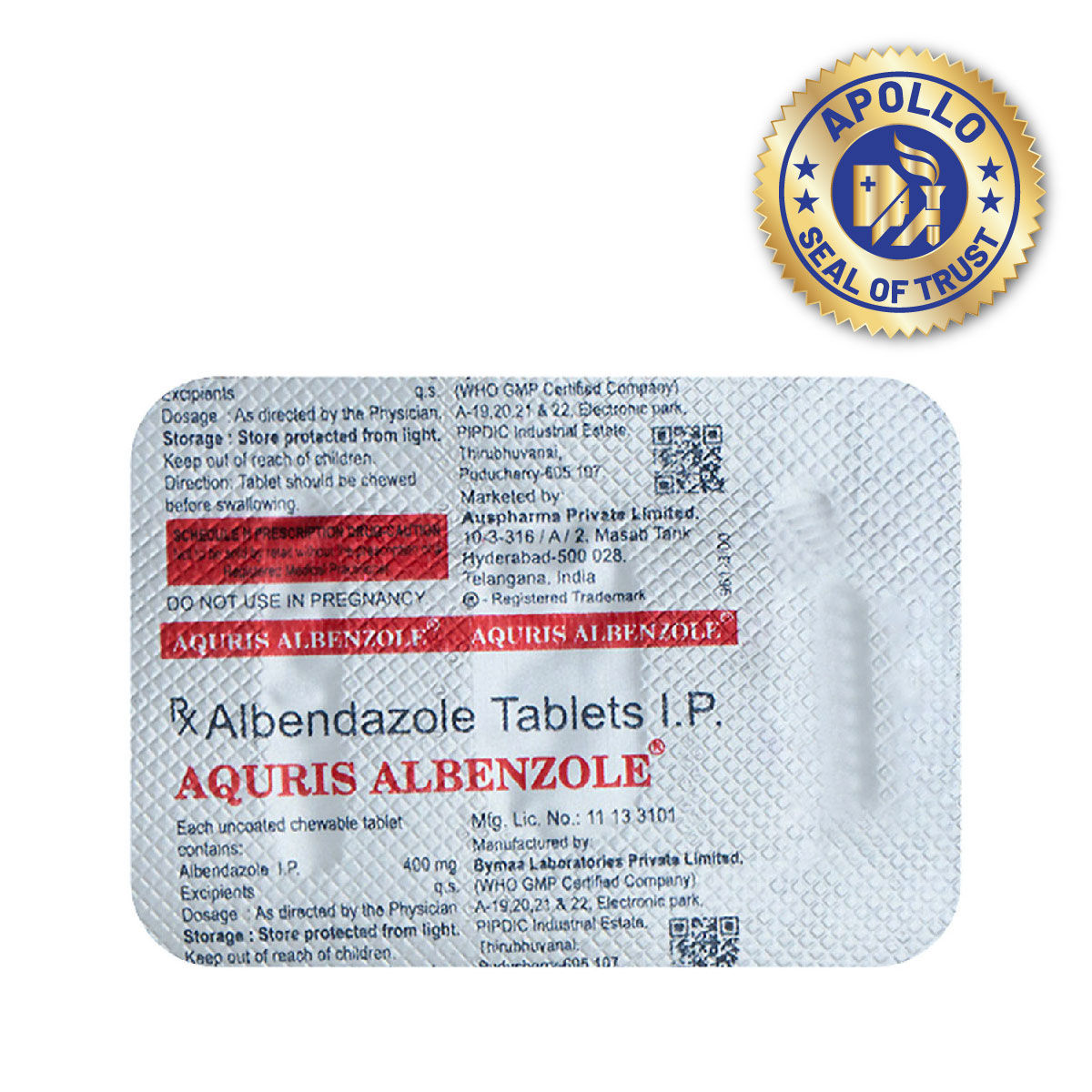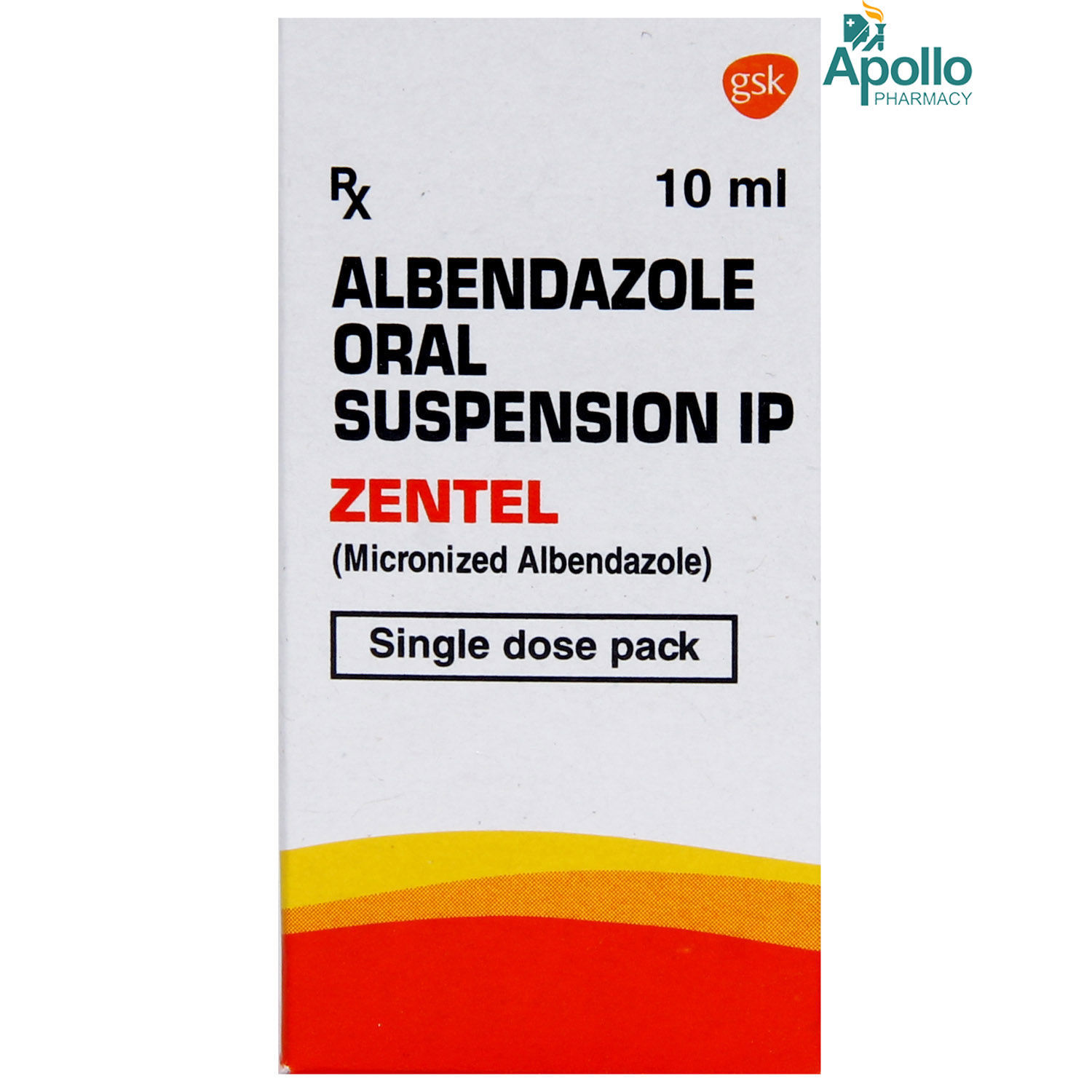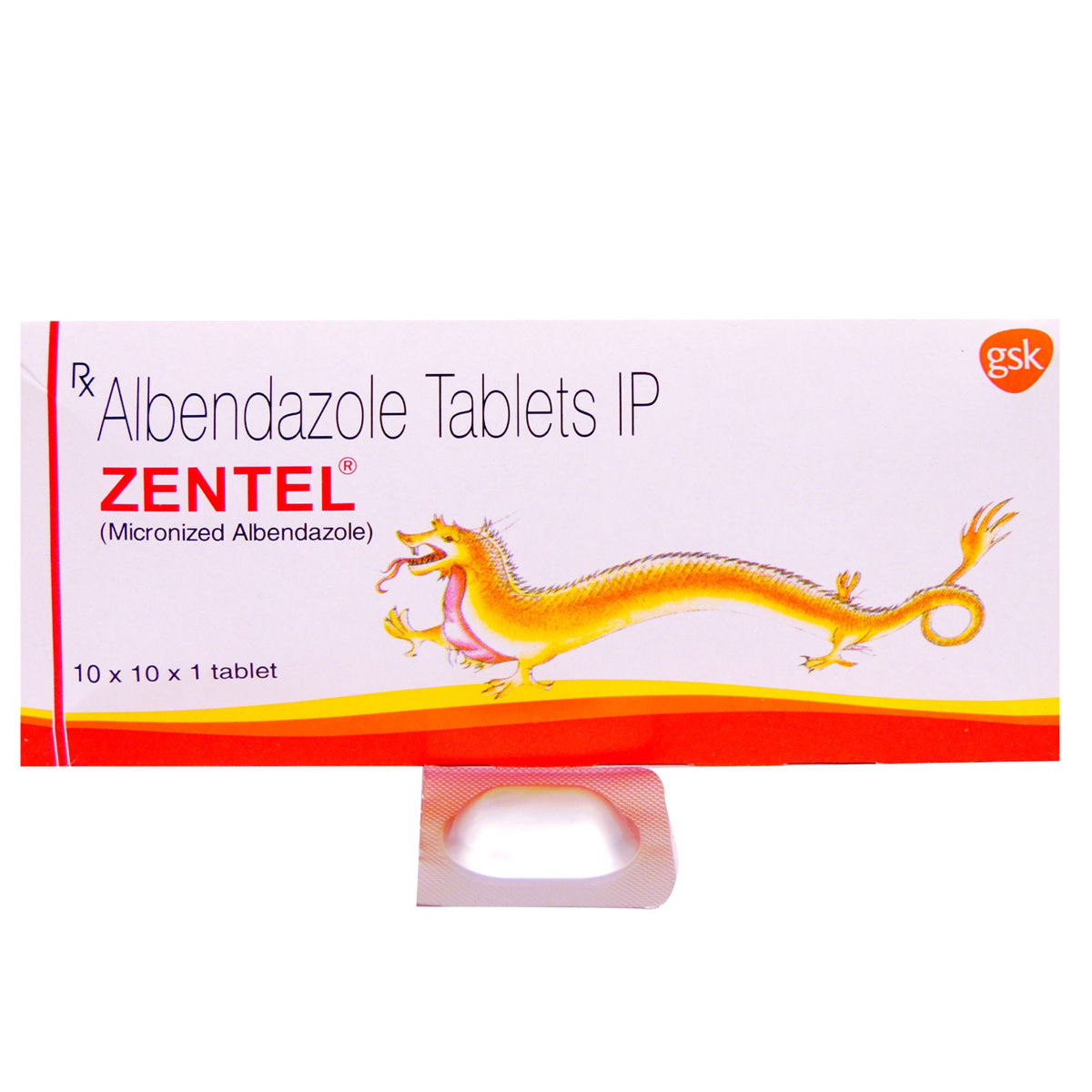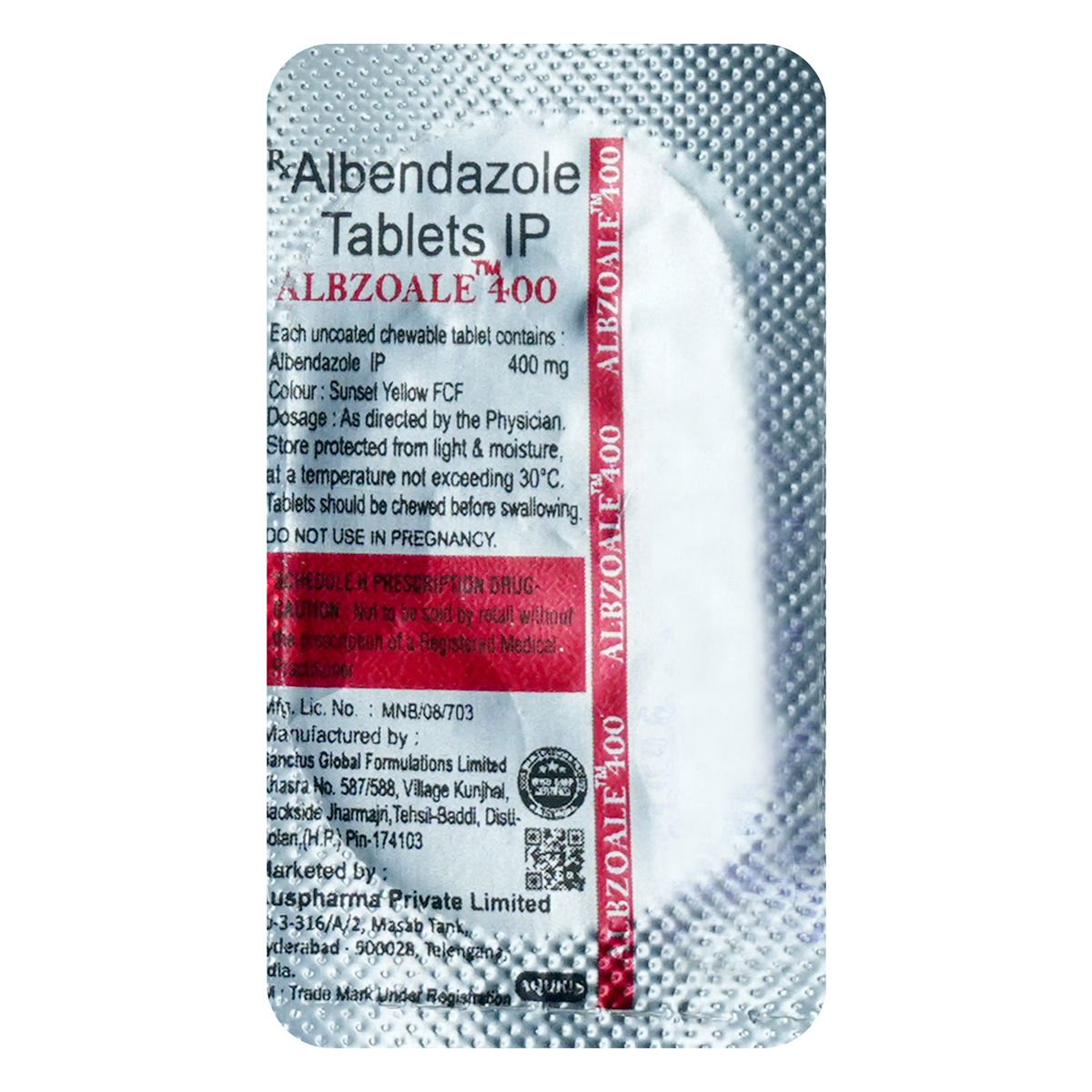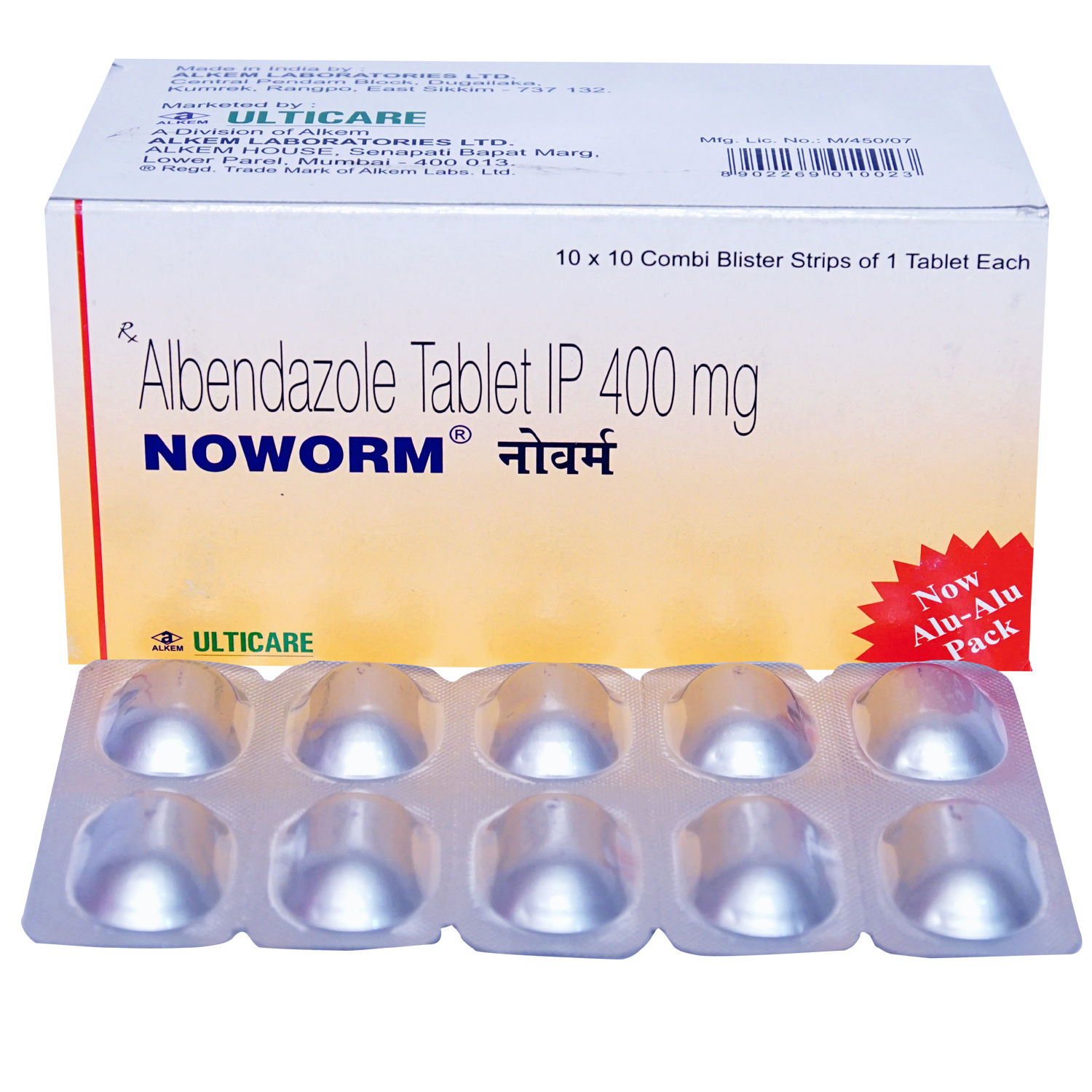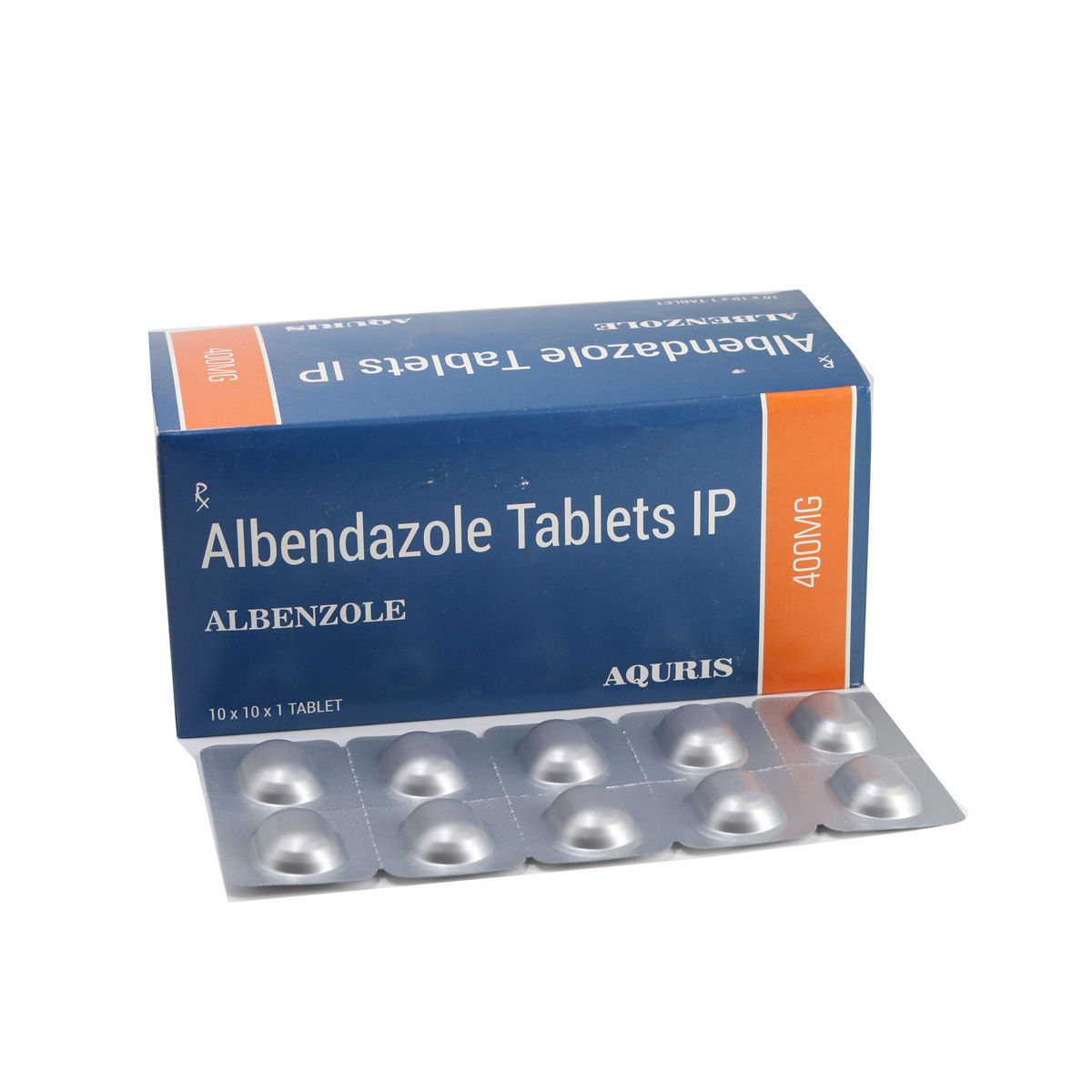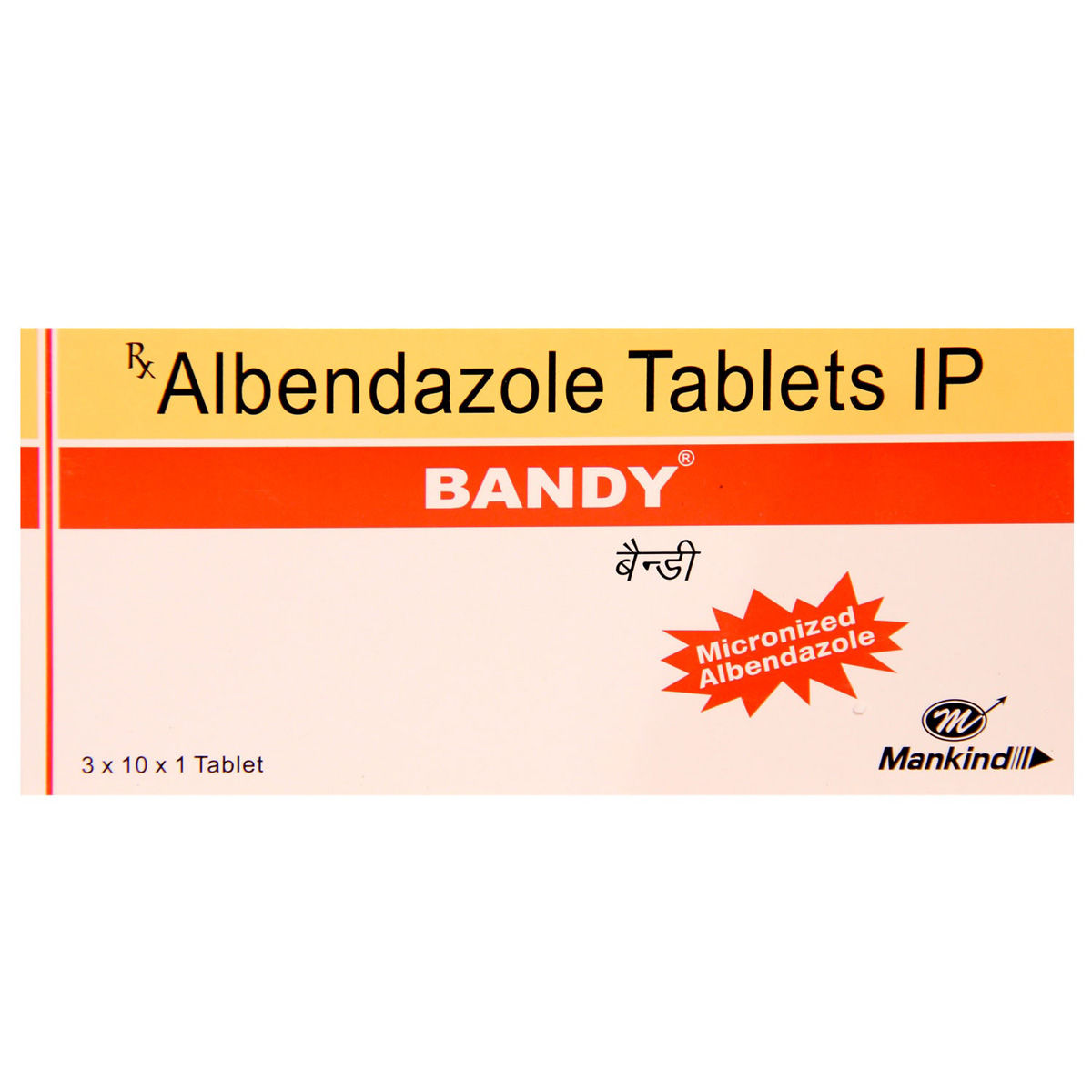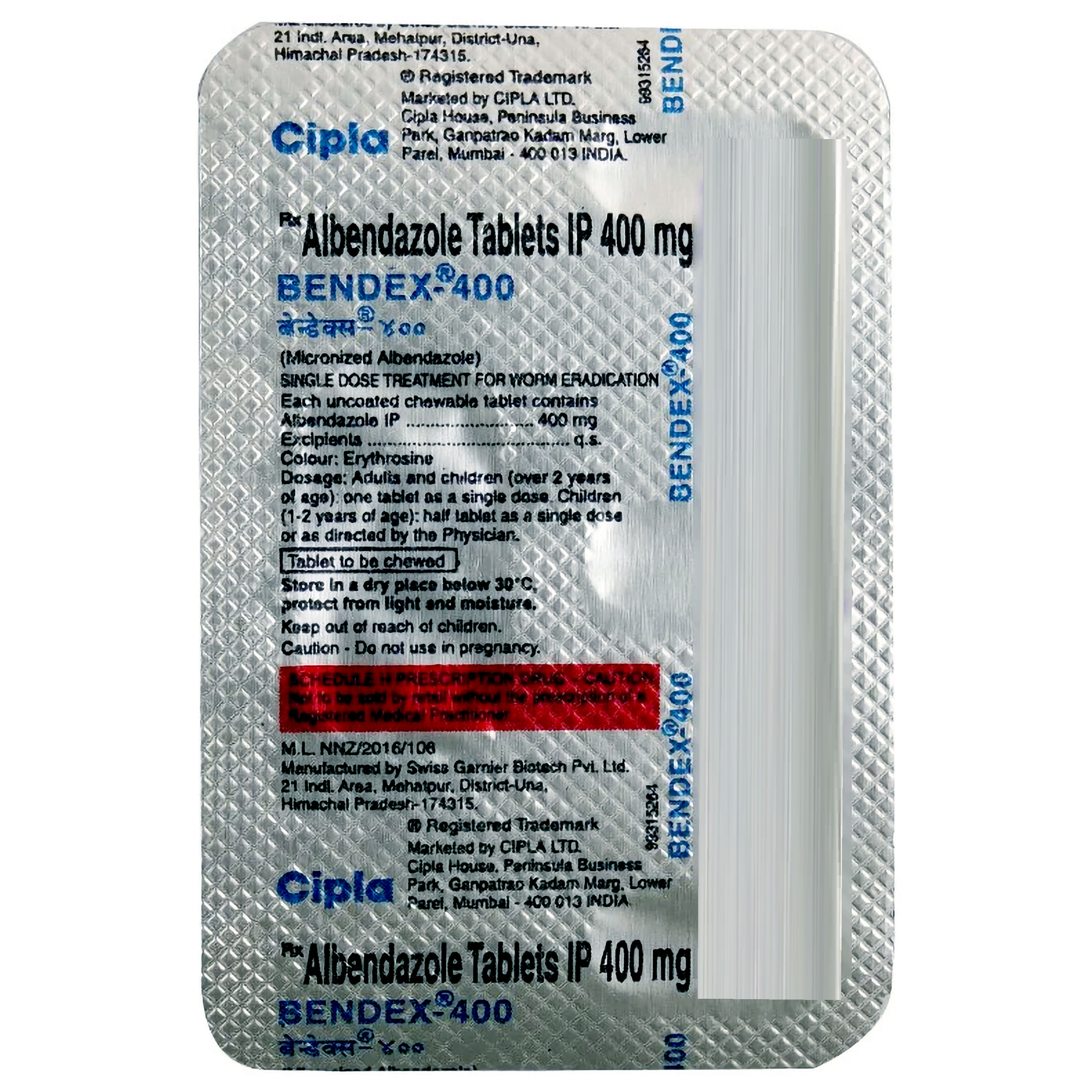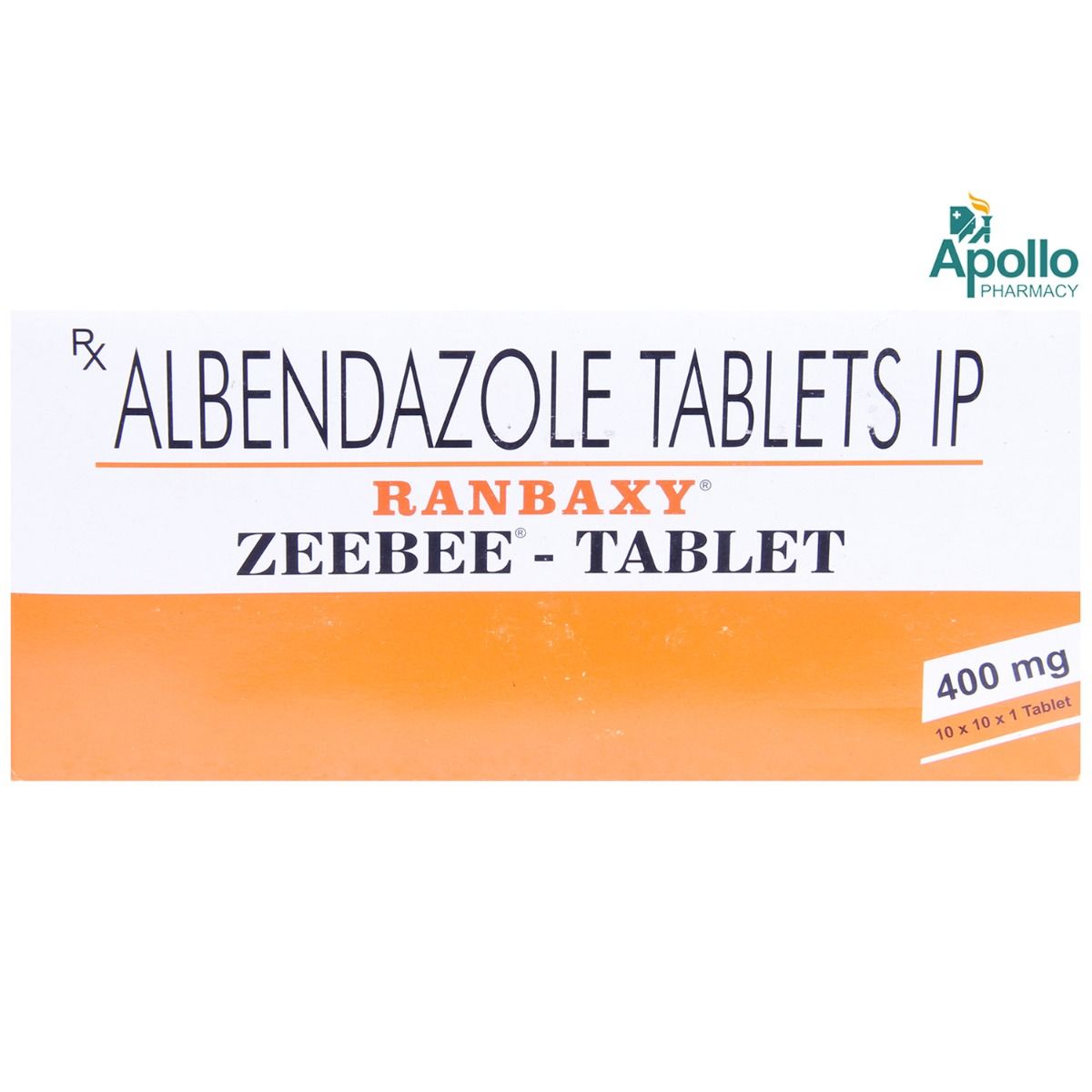Zybend 400 mg Chewable Tablet 1's


₹5*
MRP ₹9
44% off
(Inclusive of all Taxes)
GetFREE deliveryon this order with circle membership
Know Your Delivery Time
Provide Delivery Location
Available Offers

Secure Payment

India's Most Trusted Pharmacy

Genuine Products
Composition :
Manufacturer/Marketer :
Consume Type :
Return Policy :
Expires on or after :
About Zybend 400 mg Chewable Tablet
Zybend 400 mg Chewable Tablet belongs to a group of antiparasitic drugs called 'anthelmintic' used to treat parasites worm infections like neurocysticercosis (infection caused by pork tapeworm) and cystic hydatid disease (infection caused by dog tapeworm). Additionally, Zybend 400 mg Chewable Tablet is also used to treat infections caused by roundworms, hookworms, threadworms, whipworms, pinworms, flukes, and other parasites.
Zybend 400 mg Chewable Tablet contains ‘Albendazole’, which works by inhibiting tubulin polymerisation. This causes metabolic disruption and energy depletion in the parasite, which leads to its immobilisation. Thereby, Zybend 400 mg Chewable Tablet kills the susceptible helminth and treats the infection.
Take Zybend 400 mg Chewable Tablet as prescribed. You are advised to take Zybend 400 mg Chewable Tablet for as long as your doctor has prescribed it for you, depending on your medical condition. You may experience certain common side effects, such as stomach pain, nausea, vomiting, headache, and dizziness, in some cases. Most of these side effects do not require medical attention and will resolve gradually over time. However, you are advised to talk to your doctor if you experience these side effects persistently.
Zybend 400 mg Chewable Tablet might increase the chances of getting an infection; maintain proper hygiene, and try to stay away from people with infections, flu or colds. Consult your doctor if you notice unusual bleeding or bruising, as you may bleed or bruise easily while taking Zybend 400 mg Chewable Tablet. Do not take Zybend 400 mg Chewable Tablet if you are pregnant or planning for pregnancy as it may cause foetal harm. Do not breastfeed during and for a minimum of 5 days after treatment with Zybend 400 mg Chewable Tablet. Zybend 400 mg Chewable Tablet may cause dizziness, so be cautious while driving. Zybend 400 mg Chewable Tablet can be given to children if prescribed by the doctor. Keep your doctor informed about your health condition and medicines to rule out any side effects.
Uses of Zybend 400 mg Chewable Tablet
• Treatment of intestinal infections: Zybend 400 mg Chewable Tablet is commonly prescribed to combat various intestinal worm infections, such as those caused by roundworms, tapeworms and hookworms.
• Management of strongyloidiasis: Zybend 400 mg Chewable Tablet effectively treats strongyloidiasis, an infection caused by the Strongyloides stercoralis parasite.
• Control of neurocysticercosis: Zybend 400 mg Chewable Tablet helps to manage neurocysticercosis, a condition caused by pork tapeworm larvae affecting the central nervous system.
• Prevention of re-infection: Zybend 400 mg Chewable Tablet can be prescribed to help prevent re-infection with certain parasites, particularly in areas where they are common.
• Support in mixed infections: Zybend 400 mg Chewable Tablet effectively treats mixed parasitic infections, covering a broader spectrum of helminth infections.
Directions for Use
Tablet/Capsule: Swallow it as a whole with a glass of water; do not chew or crush the tablet/capsule. Syrup/Suspension/Drops: Take the prescribed dose by mouth using the measuring cup/dosing syringe/dropper; shake the pack well before each use. Chewable tablet: Chew the tablet completely and swallow. Do not swallow it as a whole.
Key Benefits
Zybend 400 mg Chewable Tablet belongs to a group of medicines called anthelmintic used to treat worm infections such as neurocysticercosis (infection caused by pork tapeworm) and cystic hydatid disease (infection caused by dog tapeworm). Zybend 400 mg Chewable Tablet is also used to treat infections caused by roundworms, hookworms, threadworms, whipworms, pinworms, flukes, and other parasites. Zybend 400 mg Chewable Tablet is a broad-spectrum anthelmintic drug which is highly effective against a wide range of intestinal helminths, including cestodes, nematodes, and trematodes. It is also effective against tissue helminth infections like cutaneous larva migrans (parasitic skin infections). Zybend 400 mg Chewable Tablet exhibits ovicidal, larvicidal and vermicidal activity. Zybend 400 mg Chewable Tablet inhibits tubulin polymerisation, which causes metabolic disruption and energy depletion in the parasite. This leads to the immobilisation of the parasite. Thereby, Zybend 400 mg Chewable Tablet kills the susceptible helminth and treats the infection.
How Zybend 400 mg Chewable Tablet Works
Storage
- High levels of liver enzymes need immediate medical attention.
- Watch your diet and consume low-fat foods, like green leafy vegetables, fish, whole grains, nuts, etc.
- Regularly do strengthening exercises to control your cholesterol levels.
- Avoid drinking alcohol as it can affect your liver.
- Focus on losing weight as it can help control cholesterol and maintain liver enzymes.
- Practice yoga and meditation to improve liver functioning and overall health.
- Hydrate your body: Drink enough water to prevent dehydration and headaches.
- Calm Your Mind: Deep breathing and meditation can help you relax and relieve stress.
- Rest and Recharge: Sleep for 7-8 hours to reduce headache triggers.
- Take rest: lie down in a quiet, dark environment.
- Cold or warm compresses can help reduce tension.
- Stay Upright: Maintain good posture to keep symptoms from getting worse.
- To treat headaches naturally, try acupuncture or massage therapy.
- Over-the-counter pain relievers include acetaminophen and ibuprofen.
- Prescription Assistance: Speak with your doctor about more substantial drug alternatives.
- Severe Headaches: Seek emergency medical assistance for sudden, severe headaches.
- Frequent Headaches: If you get reoccurring headaches, consult your doctor.
- Headaches with Symptoms: Seek medical attention if your headaches include fever, disorientation, or weakness.
- Your doctor can provide you with some medications to reduce the production of cerebrospinal fluid and subsequently lower intracranial pressure.
- Tell your doctor immediately when you feel more severe symptoms like changes in vision, confusion, or even seizure.
- Take fruits, vegetables, lean proteins, and whole grains to maintain a balanced diet.
- Reduce your intake of sodium for better fluid retention and lower blood pressure.
- Keep yourself fit with a healthy weight to decrease intracranial pressure.
- Yoga, meditation, and deep breathing will help reduce your stress levels.
- Regularly visiting the doctor helps monitor progress, health of eyes, and intracranial pressure.
- Inform your doctor about dizziness symptoms. They may adjust your medication regimen or prescribe additional medications to manage symptoms.
- Follow your doctor's instructions for taking medication, and take it at the same time every day to minimize dizziness.
- When standing up, do so slowly and carefully to avoid sudden dizziness.
- Avoid making sudden movements, such as turning or bending quickly, which can exacerbate dizziness.
- Drink plenty of water throughout the day to stay hydrated and help alleviate dizziness symptoms.
- If you're feeling dizzy, sit or lie down and rest until the dizziness passes.
- Track when dizziness occurs and any factors that may trigger it, and share this information with your doctor to help manage symptoms.
- Eat a balanced diet, including fruits, vegetables, and whole grains.
- Engage in physical therapy and rehabilitation.
- Manage stress with meditation and yoga.
- Reach out for emotional support from your family, friends, or support groups.
- Get enough quality sleep.
- Exercise regularly as physical activity helps boost circulation.
- Drink water or other clear fluids.
- To prevent worsening of pain, limit intake of tea, coffee, or alcohol.
- Include bland foods like rice, toast, crackers, and rice in your diet.
- Avoid lying down immediately after eating as it may cause indigestion or heartburn.
- Avoid acidic and spicy food as it may cause indigestion.
- Inform your doctor about the nausea and discuss possible alternatives to the medication or adjustments to the dosage.
- Divide your daily food intake into smaller, more frequent meals to reduce nausea.
- Opt for bland, easily digestible foods like crackers, toast, plain rice, bananas, and applesauce.
- Avoid certain foods that can trigger nausea, such as fatty, greasy, spicy, and smelly foods.
- Drink plenty of fluids, such as water, clear broth, or electrolyte-rich beverages like coconut water or sports drinks.
- Use ginger (tea, ale, or candies) to help relieve nausea.
- Get adequate rest and also avoid strenuous activities that can worsen nausea.
- Talk to your doctor about taking anti-nausea medication if your nausea is severe.
- Record when your nausea occurs, what triggers it, and what provides relief to help you identify patterns and manage your symptoms more effectively.
What if I have taken an overdose of Zybend 400 mg Chewable Tablet
Drug Warnings
Do not take Zybend 400 mg Chewable Tablet if you are allergic to any of its contents. Zybend 400 mg Chewable Tablet may cause bone marrow suppression, aplastic anaemia, and agranulocytosis. Inform your doctor if you have/had liver disease; if you have any surgery, including dental surgery. Consult your doctor immediately if you experience seizures, vomiting, headache, extreme tiredness, or behaviour changes while taking Zybend 400 mg Chewable Tablet. Regular blood cell count and liver function monitoring is advised during treatment with Zybend 400 mg Chewable Tablet. Zybend 400 mg Chewable Tablet might increase the chances of getting an infection; maintain proper hygiene, and try to stay away from people with infections, flu or cold. Consult your doctor if you notice unusual bleeding or bruising, as you may bleed or bruise easily while taking Zybend 400 mg Chewable Tablet. Do not take Zybend 400 mg Chewable Tablet if you are pregnant or planning for pregnancy, as it may cause foetal harm. Do not breastfeed during and for a minimum of 5 days after treatment with Zybend 400 mg Chewable Tablet. Zybend 400 mg Chewable Tablet may cause dizziness, so be cautious while driving. Zybend 400 mg Chewable Tablet can be given to children if prescribed by the doctor.
Drug-Drug Interactions
Drug-Drug Interactions
Login/Sign Up
Taking Zybend 400 mg Chewable Tablet with Cladribine can increase the risk of side effects.
How to manage the interaction:
Although taking Cladribine and Zybend 400 mg Chewable Tablet together can evidently cause an interaction, it can be taken if a doctor has suggested it. If you have any of these symptoms, contact a doctor right away. These symptoms include fever, chills, diarrhea, sore throat, muscle aches, difficulty breathing, weight loss, and pain or burning when you urinate. Do not stop using any medications without talking to a doctor.
Co-administration of Zybend 400 mg Chewable Tablet with Clozapine may increase the risk of infection.
How to manage the interaction:
Although there is a possible interaction between Zybend 400 mg Chewable Tablet and Clozapine, you can take these medicines together if advised by your doctor. However, if you develop symptoms such as chills, diarrhea, fever, sore throat, shortness of breath, muscle pains, blood in phlegm, weight loss, red or inflamed skin, body sores, and pain or burning during urination, contact a doctor immediately. Do not discontinue the medication without consulting a doctor.
Drug-Food Interactions
Drug-Food Interactions
Login/Sign Up
Grapefruit Juice, Grapefruit
How to manage the interaction:
Consuming Grapefruit and Grapefruit juice can increase the absorption of Zybend 400 mg Chewable Tablet. Avoid consuming Grapefruit and Grapefruit juice while being treated with Zybend 400 mg Chewable Tablet.
Diet & Lifestyle Advise
- Regularly wash your hands with soap and water, especially after using the toilet and while eating.
- Avoid eating raw fish and meat.
- Thoroughly cook meat before eating.
- Wash all fruits and vegetables properly before consuming.
- Wash or reheat food that has been around for a long time.
- Avoid contact with soil that may be contaminated with faeces.
- Avoid foods that have been kept open in the markets as they can be contaminated.
- Drink boiled and purified water.
Habit Forming
Therapeutic Class
Zybend 400 mg Chewable Tablet Substitute

Aquris Albenzole Tablet 1's
by Others
₹5.00per tabletZentel Oral Suspension 10 ml
by Others
₹1.80per tabletZentel Tablet 1's
by Others
₹8.10per tabletAlbendazole 400 mg Tablet 1's
by Others
₹4.90per tabletAlbzoale 400 Chewable Tablet 1's
by Others
₹4.40per tablet
Product Substitutes
Alcohol
Caution
It is unknown whether alcohol interacts with Zybend 400 mg Chewable Tablet. Please consult your doctor.
Pregnancy
Unsafe
Zybend 400 mg Chewable Tablet belongs to pregnancy category C. Do not take Zybend 400 mg Chewable Tablet if you are pregnant or planning for pregnancy as it may cause foetal harm. Please consult your doctor if you have any concerns regarding this.
Breast Feeding
Unsafe
Do not breastfeed during and for minimum 5 days after treatment with Zybend 400 mg Chewable Tablet. Please consult your doctor if you have any concerns regarding this.
Driving
Caution
Zybend 400 mg Chewable Tablet may cause dizziness. Do not drive or operate machinery unless you are alert.
Liver
Unsafe
Dose adjustment may be needed in patients with liver impairment. Please consult your doctor if you have a liver impairment or any concerns regarding this.
Kidney
Caution
Dose adjustment may be needed in patients with kidney impairment. Please consult your doctor if you have kidney impairment or any concerns regarding this.
Children
Safe if prescribed
Zybend 400 mg Chewable Tablet can be given to children if prescribed by the doctor. Please consult your doctor. Your doctor will prescribe the dose of this medicine based on the age and body weight of your child.

Have a query?
FAQs
Zybend 400 mg Chewable Tablet is used to treat parasite worm infections like neurocysticercosis (infection caused by pork tapeworm) and cystic hydatid disease (infection caused by dog tapeworm). Additionally, it is also used to treat infections caused by roundworms, hookworms, threadworms, whipworms, pinworms, flukes, and other parasites.
Zybend 400 mg Chewable Tablet causes metabolic disruption and energy depletion in the parasite, which leads to its immobilisation. Thereby, Zybend 400 mg Chewable Tablet kills the susceptible helminth and treats the infection.
For neurocysticercosis, Zybend 400 mg Chewable Tablet is usually prescribed for 8-30 days. For cystic hydatid disease, Zybend 400 mg Chewable Tablet is usually prescribed for 28 days, followed by a 14 day break, and repeated for a total of 3 cycles.
Do not discontinue Zybend 400 mg Chewable Tablet without consulting your doctor. To treat your condition effectually continue taking Zybend 400 mg Chewable Tablet for as long as prescribed. Do not be reluctant to speak with your doctor if you feel any difficulty while taking Zybend 400 mg Chewable Tablet.
You are recommended to avoid planning for pregnancy while taking Zybend 400 mg Chewable Tablet as it may cause foetal harm. A pregnancy test should be done before starting the treatment with Zybend 400 mg Chewable Tablet, and women must use effective birth-control while taking Zybend 400 mg Chewable Tablet and for at least 1month after cessation of treatment.
Regular monitoring of blood count at the beginning of each cycle therapy and for every 2weeks while taking Zybend 400 mg Chewable Tablet is advised for all patients. Treatment with Zybend 400 mg Chewable Tablet should be discontinued if a significant decrease in blood cell count is observed.
Treatment with Zybend 400 mg Chewable Tablet has been associated with mild to moderate elevations of liver enzymes. These elevations generally return to normal upon discontinuation of Zybend 400 mg Chewable Tablet. Liver function tests should be performed before each treatment cycle and for every 2weeks during the treatment. Treatment with Zybend 400 mg Chewable Tablet should be discontinued if the liver enzymes exceed twice the upper limit of normal.
Zybend 400 mg Chewable Tablet might increase the chances of getting an infection. Maintain proper hygiene and try to stay away from people with infections, flu or cold.
You may bleed or bruise easily while taking Zybend 400 mg Chewable Tablet. Be cautious while using sharp objects and try to avoid injuries. Consult your doctor if you notice unusual bleeding or bruising.
You are recommended to avoid taking Zybend 400 mg Chewable Tablet if you allergic to Zybend 400 mg Chewable Tablet or any of its ingredients, if you are pregnant or planning pregnancy as it may cause foetal harm.
Zybend 400 mg Chewable Tablet should be used only under doctor’s supervision. Do not self-medicate as it can cause some severe side effects. Therefore, if you suspect worm infections in your kid, please consult a doctor.
Yes, Zybend 400 mg Chewable Tablet can cause diarrhea as a side effect. In such cases, drink lots of water or other fluids to stay hydrated. However, if diarrhea persists and you notice any signs of dehydration, such as reduced urination with strong-smelling and dark colored urine, consult your doctor. Do not take any other medications without your doctor’s advice.
No, taking Zybend 400 mg Chewable Tablet in more than the recommended dose will not make it more effective, rather it can increase the risk of severe side effects and toxicity. If the symptoms are not relieved by the recommended doses, please consult your doctor.
Store Zybend 400 mg Chewable Tablet at room temperature in a cool, dry and dark place. Protect from light. Keep it out of reach of children.
Yes, Zybend 400 mg Chewable Tablet can be taken with or without food or as advised by your doctor. Follow your doctor’s instructions.
The side effects of Zybend 400 mg Chewable Tablet include stomach pain, nausea, vomiting, headache and dizziness. If these side effects persist or worsen, please consult your doctor.
Yes, Zybend 400 mg Chewable Tablet may interact with praziquantel (anthelmintic), dexamethasone (corticosteroid), cimetidine (antacid), and theophylline (anti-asthma). Therefore, inform your doctor before taking Zybend 400 mg Chewable Tablet with other medicines to avoid possible interactions.
Country of origin
Manufacturer/Marketer address
Disclaimer
Author Details
We provide you with authentic, trustworthy and relevant information






